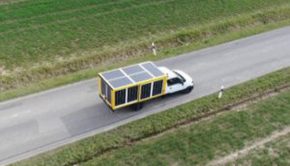Saving the planet and the economy: We must do both –
Saving the planet and the economy: We must do both –

The problem humanity faces is not climate change per se – it is providing reliable energy to a growing world economy and a global population projected to hit 10 billion by 2100. Climate change is a byproduct. To provide the necessary energy, every possible source must be on the table for consideration. The solution is not saying “yes” or “no” to individual energy sources, including fossil fuels, but finding the best combination of all of them that properly trades off the benefits of economic growth against the costs of environmental damage. As Nobel Prize winner William Nordhaus says, we must find the optimal path between wrecking the world and wrecking the global economy.
One thing is clear. For decades to come, part of the energy solution will be fossil fuels. There are too many activities, such as air travel, for which the high energy of fossil fuels is a requirement. Years into the future those activities may be taken over by green hydrogen, but that is years in the future and poor people in developing countries are not going to wait.
There are steps that can be taken to manage the tradeoffs properly. One obvious step is the initiation of a meaningful carbon tax, a step advocated by incoming Treasury Secretary Janet Yellen, along with Mr. Nordhaus and three thousand five hundred other professional economists. If the prices of fossil fuels reflected the full social costs of using them, private business such as airlines would be able to rely on fuel prices to make socially optimal decisions.
Humanity got itself into the climate change pickle in large part by making politically expedient decisions rather than objectively assessing all the social costs and benefits of energy provision. We are now moving in the direction of making the same mistakes, but in the opposite direction. Steps such as divesting from fossil fuel companies or putting pressure on financial institutions to stop lending to them are the current version of politically expedient, but misguided, steps.
Fossil fuels are not “bad,” they are a wonderful source of reliable energy, but they have a downside. So, for that matter, do all sources of renewable energy. Solar energy, for instance, requires a great deal of mining and manufacturing to produce the immense number of panels required to produce energy at the massive levels required by the global economy. At the end of their lives those panels must be disposed of and replaced.
There is no free lunch with regard to any form of energy, particularly if must be reliability provided for 10 billion people. The best we can do is manage the tradeoffs wisely. That means putting in place sensible policies and taxes that help people and businesses properly tradeoff the costs and benefits of all energy sources over the course of the next century. If the costs of emissions associated with burning fossil fuels is high, their price, after tax, should reflect that. Heavy handed solutions such as bans are unlikely to be reasonable alternatives, particularly when the future path of technology is uncertain.
In this regard, economists, led by Mr. Nordhaus, have taken a step in the right direction by developing integrated assessment models designed to take account of all the costs and benefits of energy provision over time. While the models are far from perfect, they are the best tools we have for evaluating the costs and benefits associated with energy provision, including the impact on the climate. Such tools can help us find the right path between wrecking the economy and wrecking the world. Dramatic, politically expedient pronouncements, such as those calling for the demise of fossil fuel companies, are likely to be as damaging in the future as reverse pronouncements were in the past. The way forward is not polemics but finding the best compromise between saving the world and protecting the global economy.
Bradford Cornell, Senior Advisor at Berkeley Research Group, and Ivo Welch are Professors of Finance at the Anderson Graduate School of Management at UCLA. Their forthcoming book is entitled, Moving the Needle: A Pragmatist’s Approach to Fighting Climate Change.









